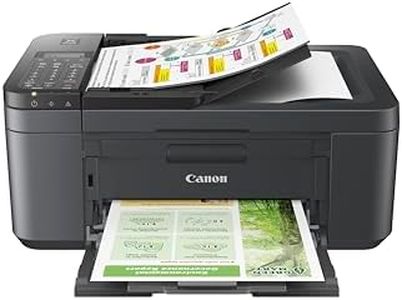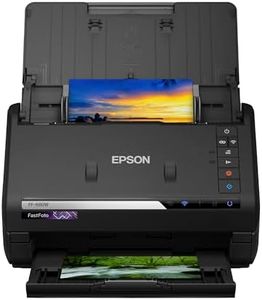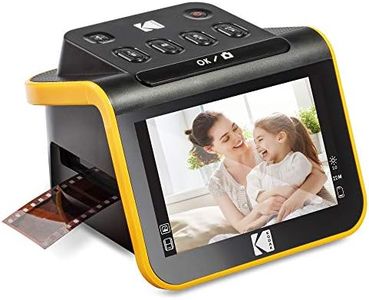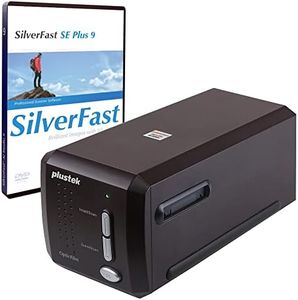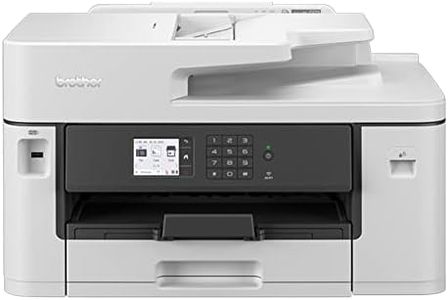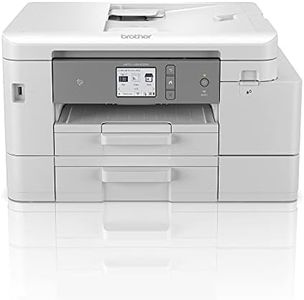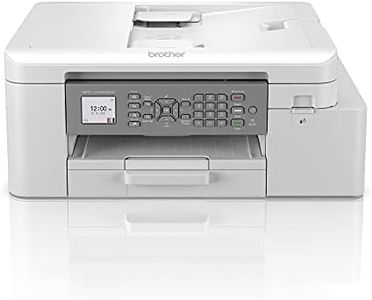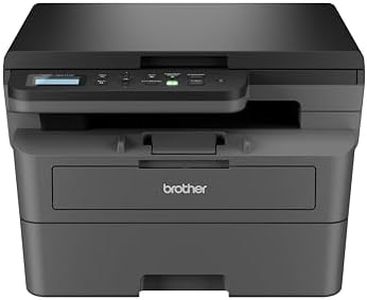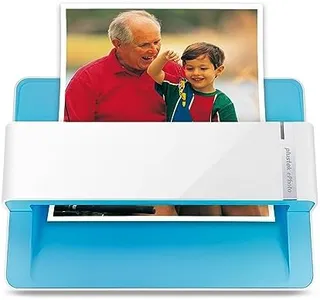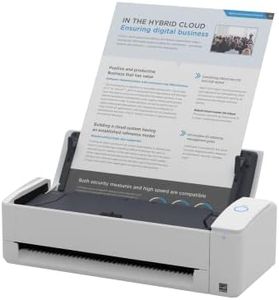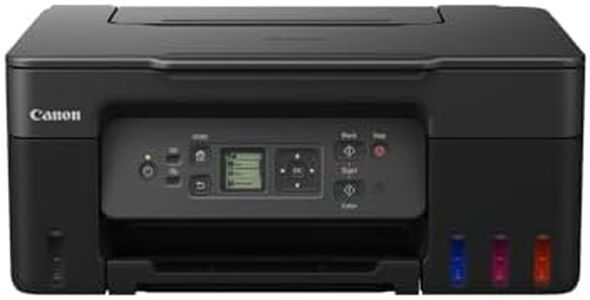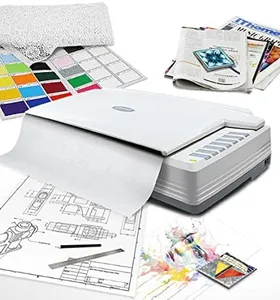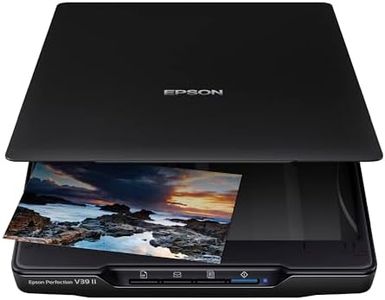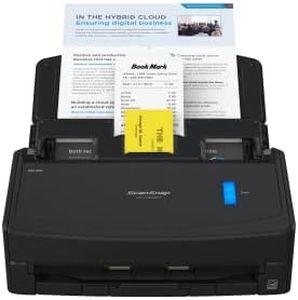We Use CookiesWe use cookies to enhance the security, performance,
functionality and for analytical and promotional activities. By continuing to browse this site you
are agreeing to our privacy policy
10 Best Photo Scanners
From leading brands and best sellers available on the web.Buying Guide for the Best Photo Scanners
When choosing a photo scanner, it's important to consider what you'll primarily be using it for. Whether you're digitizing old family photos, scanning professional prints, or archiving documents, the right scanner can make a big difference in the quality and efficiency of your work. Understanding the key specifications will help you make an informed decision that best suits your needs.ResolutionResolution is measured in dots per inch (DPI) and indicates the level of detail a scanner can capture. Higher DPI means more detail, which is crucial for high-quality photo scans. For general photo scanning, a resolution of 300-600 DPI is usually sufficient. However, if you're scanning photos for professional use or need to enlarge them significantly, you might want a scanner with a resolution of 1200 DPI or higher. Consider what you'll be doing with the scanned images to determine the right resolution for you.
Color DepthColor depth, measured in bits, refers to the number of colors a scanner can capture. A higher color depth means more accurate color reproduction. Most photo scanners offer 24-bit color depth, which is adequate for everyday use. For professional or archival purposes, a 48-bit color depth is preferable as it captures more subtle color variations. Think about the importance of color accuracy in your scans when choosing the color depth.
Scan SpeedScan speed is how quickly a scanner can process an image, usually measured in seconds per page. Faster scan speeds are beneficial if you have a large volume of photos to digitize. For occasional use, a slower scanner might be acceptable, but if you're scanning hundreds of photos, look for a model that offers quicker processing times. Consider how much time you can dedicate to scanning when evaluating scan speed.
ConnectivityConnectivity options determine how you can connect the scanner to your computer or other devices. Common options include USB, Wi-Fi, and sometimes Bluetooth. USB connections are reliable and fast, while Wi-Fi offers more flexibility and convenience, especially if you want to scan directly to cloud services or mobile devices. Choose a connectivity option that fits your workflow and the devices you plan to use.
Software FeaturesThe software that comes with a scanner can greatly enhance its functionality. Look for features like automatic color correction, dust and scratch removal, and the ability to save in multiple file formats. Some scanners also offer OCR (Optical Character Recognition) for converting scanned documents into editable text. Consider what features will be most useful for your scanning projects and ensure the scanner's software supports them.
Size and PortabilityThe size and portability of a scanner can affect where and how you use it. Desktop scanners are larger and typically offer more features, while portable scanners are compact and easy to move around. If you have limited space or need to scan on the go, a portable scanner might be the best choice. Think about where you'll be using the scanner and how often you'll need to move it when considering size and portability.
